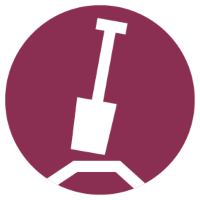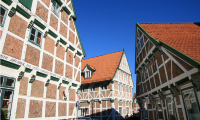The time frames on the topic:
The Right of the Dutch
The colonists not only brought their knowledge of hydraulic engineering, they also lived according to different rules. In the Middle Ages the law was not regulated centrally. Measures, laws and customs differed from one another. The colonists who had been brought into the country to turn the inhospitable swamplands into fertile farmland were now free farmers living on their own land. The social life of this society, which was influenced by the Dutch, was fundamentally determined by the dyke law.
No land without a dyke, no dyke without land.
Each farm was assigned a section of the dyke. This section was called Kabel. A farm had to remain economically strong in order to fulfill this duty. Due to this compulsion, the inheritance law in the Holler regions was also different. There was no sharing. The youngest became heir. Women were also allowed to inherit. And because they needed to be able to run the farms, they were educated accordingly.
The Altes Land community administered itself. With its first democratic structures and elected counts.
And this already in the Middle Ages.
Almost all the time frames of the Hollerweg have overlapping topics. However, they are always assigned to only one topic. The topic, which becomes more vivid at this point, than elsewhere.
The time frames on the topic the Right of the Dutch:

